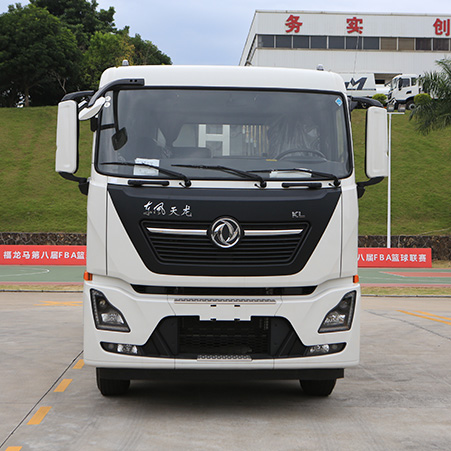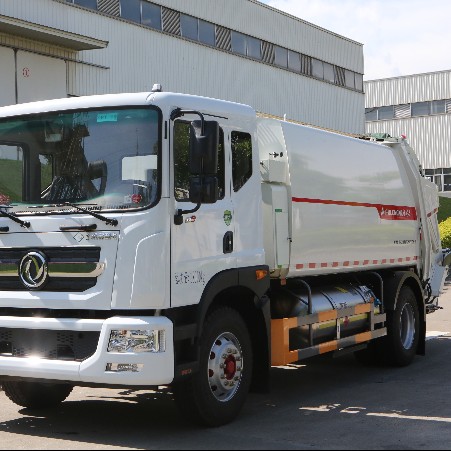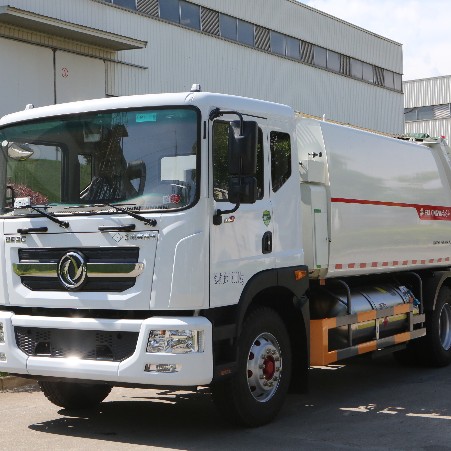Did you know that sewer-cleaning trucks play a pivotal role in maintaining urban hygiene and preventing public health crises? In cities worldwide, these specialized vehicles are the unsung heroes ensuring our sewer systems remain clean and functional. However, with increasing environmental concerns and the drive towards greener technology, traditional diesel-powered trucks are being challenged by advanced, eco-friendly alternatives.
Traditional diesel-powered sewer cleaning trucks, while effective, contribute significantly to pollution and environmental degradation. In contrast, the latest advancements in sewer cleaning technology are leaning towards greener alternatives, such as natural gas-powered trucks. These innovations promise to enhance urban cleanliness while reducing environmental impact.

What are Diesel Garbage Trucks?
Diesel Garbage Trucks have long been the backbone of waste management. These trucks use diesel engines to power various mechanisms, including vacuum systems and high-pressure water jets, crucial for effective sewer cleaning.
Engine and Operation: Diesel engines provide the power needed for heavy-duty tasks, such as vacuuming debris and high-pressure cleaning.
Environmental Impact: Despite their effectiveness, diesel trucks emit significant amounts of pollutants, including nitrogen oxides (NOx) and particulate matter, contributing to air quality issues.
Maintenance: Diesel engines require regular maintenance, including oil changes and emissions checks, which can add to operational costs.
What are Natural Gas Garbage Trucks?
Natural Gas Garbage Trucks represent a significant step forward in eco-friendly waste management. These trucks use natural gas, typically in the form of compressed natural gas (CNG) or liquefied natural gas (LNG), as their fuel source. Key features include:
- Engine and Operation: Natural gas engines are designed to be more efficient and cleaner than diesel engines. They use advanced technology to manage waste collection and cleaning tasks.
- Environmental Impact: Natural gas trucks produce fewer emissions compared to diesel models, including lower levels of NOx and virtually no particulate matter.
- Maintenance: With fewer moving parts and a cleaner burn, natural gas engines often require less maintenance, reducing overall operational costs.
Comparing Natural Gas and Diesel Garbage Trucks
When comparing natural gas and diesel sewer cleaning trucks, several factors come into play:
Environmental Impact
- Diesel: Diesel engines contribute to air pollution with higher emissions of harmful gases and particulates. These pollutants can exacerbate respiratory issues and contribute to environmental degradation.
- Natural Gas: Natural gas engines offer a cleaner alternative, emitting significantly fewer pollutants and greenhouse gases. This shift helps improve urban air quality and supports sustainability goals.
Cost Efficiency
- Diesel: Diesel fuel tends to be more expensive, and the associated maintenance costs can be higher due to the engine’s complexity and the need for regular emissions control.
- Natural Gas: While natural gas trucks might have a higher initial cost, they often benefit from lower fuel costs and reduced maintenance needs. Government incentives and rebates can further offset these costs.
Performance and Reliability
- Diesel: Diesel engines are known for their power and reliability in heavy-duty applications, but they come with the trade-off of higher emissions.
- Natural Gas: Modern natural gas engines offer comparable performance and reliability while significantly reducing environmental impact. Advances in technology continue to enhance their efficiency and range.
Infrastructure and Support
- Diesel: Diesel fuel infrastructure is well-established, with numerous refueling stations available.
- Natural Gas: The infrastructure for natural gas refueling is expanding, though it may not be as widespread as diesel stations. Investments in infrastructure are growing to support this shift.
The Shift Toward Natural Gas: Why the Change?
The move towards natural gas in sewer cleaning trucks is driven by several factors:
- Regulations and Policies: Governments worldwide are implementing stricter emission regulations and offering incentives for cleaner technologies. Natural gas vehicles are often supported by these policies, encouraging municipalities to adopt them.
- Environmental Goals: The push for greener technologies aligns with broader environmental and sustainability goals. Reducing emissions and improving air quality are critical components of urban sustainability initiatives.
- Technological Advancements: Innovations in natural gas engine technology have made these vehicles more viable and cost-effective. Improved efficiency and reduced maintenance needs are making them an attractive alternative to diesel.
Conclusion
The shift from diesel to natural gas represents a significant advancement in waste management technology. By reducing emissions and improving efficiency, natural gas trucks are helping to create cleaner, healthier cities. As technology continues to evolve and infrastructure expands, the benefits of natural gas sewer cleaning trucks will likely become even more pronounced.
FAQs
How do natural gas garbage trucks compare in terms of performance?
Natural gas garbage trucks generally offer comparable performance to diesel models, with advancements in technology improving their efficiency and range. They provide sufficient power for waste collection tasks while reducing emissions.
What are the main environmental benefits of using natural gas over diesel?
Natural gas trucks produce significantly lower levels of nitrogen oxides and particulate matter, contributing to improved air quality and reduced greenhouse gas emissions compared to diesel trucks.
Are there government incentives for adopting natural gas garbage trucks?
Yes, many governments offer incentives such as tax credits, rebates, and grants to encourage the adoption of natural gas vehicles. These incentives can help offset the initial cost of natural gas trucks and support the development of refueling infrastructure.
What challenges might municipalities face when transitioning to natural gas trucks?
Challenges include the higher initial cost of natural gas trucks, the need for expanded refueling infrastructure, and potential changes in maintenance practices. However, these challenges are being addressed through technological advancements and supportive policies.
How does the cost of natural gas compare to diesel fuel?
Natural gas is often less expensive than diesel fuel, which can lead to cost savings over time. Additionally, natural gas vehicles generally require less maintenance, further reducing operational costs.








